Related Articles
Related Articles
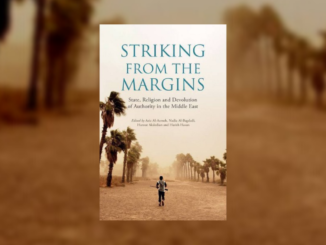
Book Review: ‘Striking from the Margins’ Avoids Trying to ‘Fix’ West Asia—or What Is Known As the ‘Middle East’
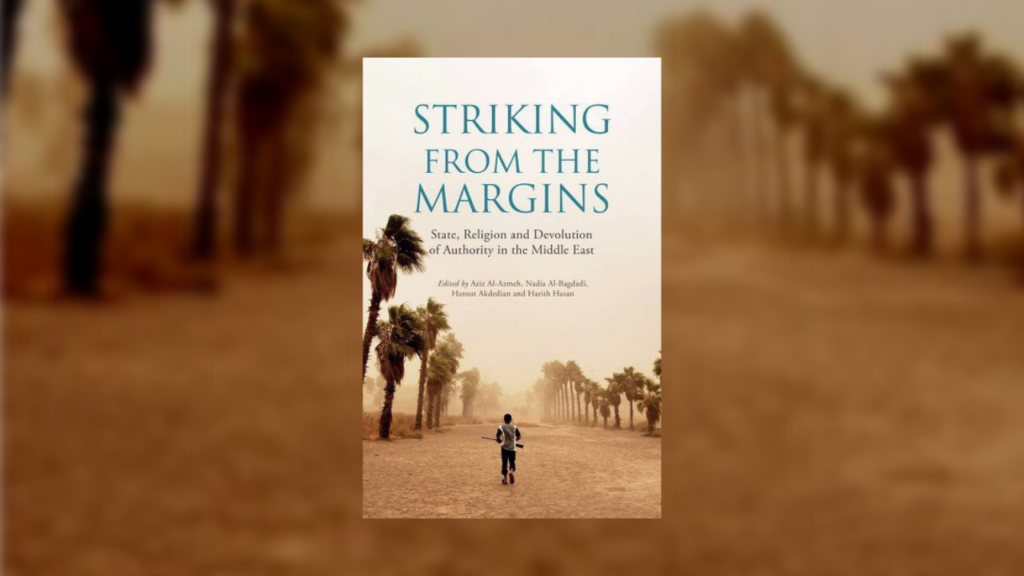
Editor’s Note: Toward Freedom uses “West Asia” to describe what is referred to as the “Middle East,” a term with colonial roots.
Striking from the Margins edited by Aziz Al-Azmeh, Nadia Al-Bagdadi, Harout Akdedian and Harith Hasan (London, United Kingdom: Saqi Books, 2021)
The tumultuous state of West Asia has been a contentious topic within many academic and social circles for centuries. Over the past half-century many academics, politicians and strategists have put forth initiatives, programs and policies focused on reconstructing the region.
For far too long, Western countries have seen West Asia as an underdeveloped expanse of land and resources controlled and governed through antiquated religious and social policies. What separates Striking from the Margins from other discourses on the region is its commitment to addressing the misconceptions that often keep people from understanding the relationship between West Asian countries and the Western ones that occupy and use their territory mostly for economic benefits.
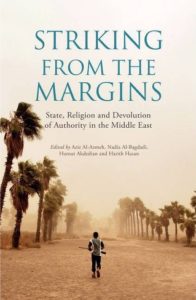
The Disconnect Between East and West
One of the reasons such a disconnect exists between those living in West Asia and the Western countries, whose tax dollars finance the implementation of interventionist policies, is due to a lack of understanding regarding West Asian governance. While the United States’ two-party system is imperfect, it offers an often-predictable outcome that effectively reinforces the country’s status quo as a leading economic power across the globe. On the other hand, many countries in West Asia face a more challenging set of circumstances to develop their economies. For example, in the early 2000s Iraqi President Saddam Hussein’s government was not only dealing with warring Shi’i and Sunni factions seeking power within Iraq, but also Islamists and U.S. troops fighting to control the region. Research done by Greek political scientist Stathis Kalyvas shows a combination of sectarian conflict along with “a short war between U.S. troops and Shi’i militias” led to Iraq experiencing “a collapse of state capacity.” (pg. 37) Such a collapse has continued to make it difficult for the country to rebuild and develop. This book effectively outlines the circumstances that have kept certain West Asian countries from modernizing.
Striking from the Margins is not a dissertation that seeks to “fix” the region. Instead, the authors push for a reconceptualization along with reasonable policy changes that would be more economically beneficial to those regions. Understanding the type of social, religious and economic pressures West Asian countries face is pivotal to building stronger and more equitable partnerships between those countries and Western ones. In the book, two of the authors, Aziz Al-Azmeh and Nadia Al-Bagdadi, effectively highlight the hypocrisy of interventionism, along with its role in destabilizing West Asia. They offer a diligent overview of state formation in the region.
In writing that “the modern state in the Mashreq arose from the needs of internal reform arising in response to global, arguably colonial pressures from outside and from internal processes of modernization, starting with the Ottoman reforms of the 19th century” (pg. 8), the authors offer a concise historical context regarding state formation in the region. But when they go on to state that “the most artificial state” and yet the strongest in West Asia is Israel (pg. 8), the blatant contradiction between regional support and global impact becomes evident. On one hand, powerful states in the region historically gained their legitimacy through a combination of regional support, resource management and tribal warfare. However, the most powerful country in the region, Israel, is not supported by neighboring countries like Egypt, Syria and Lebanon. It instead maintains legitimacy through a “client state” relationship with the United States. Thus, Israel possesses an imbalanced stronghold over the region when it comes to warfare. When discussing West Asia and the constant demands for reform in the region, it is important to explore the role Israel and the United States have played in maintaining the economic status quo.
Religious Fundamentalism and Global Capitalism
In lieu of adequate research most people tend to assume that religious fundamentalism is the leading factor stifling the development of West Asian countries. However, research suggests economic inequalities are the leading cause of instability in the region. Kalyvas writes “$1,000 less in per capita income is associated with 41 percent greater annual odds of civil war onset, on average.” (pg. 30) The Gulf Cooperation Council consists of Bahrain, Kuwait, Oman, Qatar, Saudi Arabia and the United Arab Emirates. Together, they represent a regional, intergovernmental, political and economic union designed to integrate multiple economies and bolster infrastructure across member countries. The issue is such integration comes at a significant cost for the “migrant workers [who] have been fundamental to patterns of urban growth and capital accumulation in the Gulf.” (pg. 57) Hanieh explains “a large number of temporary migrant workers… from South Asia and, to a lesser degree, the Arab world… make up more than half of the Gulf’s total population of 56 million.” (pg. 57) Even though these workers account for more than 59 percent of the labor force within the Gulf, they have been denied labor, political and civil rights. Much of the political and economic capital used to support growth across the region is not helping the people who need it the most.
In closing, several competing entities influence the economic, social and political infrastructure of West Asia. The most important are the countries in the region, specifically those that make up the Gulf Cooperation Council, as well as non-member countries like the United States, who have a vested interest in the maintenance and development of certain programs and countries in the region. The value of Striking from the Margins is its subtle refusal to put forth a heavy-handed, neoliberal proposal on how to “reform” West Asia. Instead, it offers proper context for readers to take a step back, thoughtfully assess the situation and envision new ways to embark on such a difficult development process.
Timothy Harun is a writer and actor based in Los Angeles. He holds a B.A. in journalism from Hampton University.
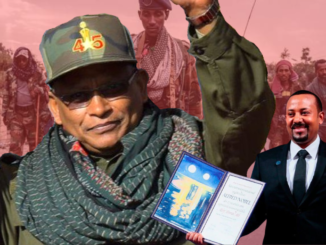
U.S.-Backed TPLF Breaks 5-Month Truce By Resuming War in Northern Ethiopia

Editor’s Note: This article was originally published by People’s Dispatch.
Young people from Ethiopia’s northernmost State of Tigray, conscripted under threat by the Tigray People’s Liberation Front (TPLF), continue the attack on the Raya Kobo district of the neighboring Amhara State, six days after TPLF resumed the civil war.
In a bid to avoid mass-civilian casualties in urban fighting, the federal troops have withdrawn from Kobo city and taken defensive positions on its outskirts, the Government Communication Service said on Saturday, August 27. While leaving the door open for negotiations under the African Union (AU), the Ethiopian federal government has however stated that it will be “forced to fulfill its legal, moral and historical duty,” if the TPLF does not stop.
The five-month long humanitarian truce in the civil war, which the TPLF started in November 2020 by attacking a federal army base in Tigray’s capital Mekele, effectively collapsed on August 24 after the TPLF launched this attack on Raya Kobo.
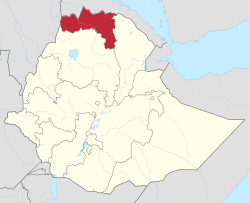
A2—a critical highway between Ethiopian capital Addis Ababa and Mekele—passes through this strategic Amharan district in the northeast of North Wollo Zone, sitting on the border with Tigray to the north and Afar to the east.
Civilians in Amhara and Afar have already suffered mass-killings, rapes, hunger and disease with the looting and destruction of food warehouses and medical facilities, when the TPLF had invaded from Tigray mid-last year.
The southward invasion of the TPLF last year had begun soon after the government declared a unilateral ceasefire and withdrew the federal troops from Tigray on June 29, 2021, to prevent disruption of the agricultural season with fighting. Food insecurity in the region had already reached emergency levels.
Stealing hundreds of UN World Food Program (WFP) trucks that were carrying food aid to Tigray over the following months, the TPLF, using conscripted forces, made rapid advances into Amhara and Afar. By August that year, Raya Kobo had fallen to TPLF. In and around Kobo city alone, the TPLF is reported to have killed over 600 civilians in September.
Advancing further south along the A2, the TPLF had captured several other Amharan cities and reached within 200 kilometers of capital Addis Ababa by the year’s end. To the east, in Afar, the TPLF had pushed south all the way to Chifra, only 50 kilometer (31 miles) from Mille district where it intended to seize the critical highway connecting land-locked Ethiopia’s capital to the port in neighboring Djibouti. However, the use of human waves to attack, which had enabled its rapid advance, had also depleted its forces, having taken heavy casualties by then.
The reversal began in December, when the combined forces of federal troops and regional militias from Afar and Amhara pushed back the TPLF. The TPLF had by then stretched far south from its base in Tigray. All along the way, it had turned the civilian population against itself by its mass-killings, looting and rapes. By the start of this year, the TPLF had been pushed back into Tigray, and encircled there.
However, Prime Minister Abiy Ahmed’s government, under enormous international pressure, ordered the troops to stand guard at Tigray’s border and not enter the state. In March 2022, the government unilaterally declared a humanitarian truce to allow for peaceful flow of much needed aid into Tigray. The TPLF reciprocated. Despite occasional clashes, the truce largely held out on the ground for the last five months. During this period, the African Union (AU) High-Representative for the Horn of Africa, former Nigerian President Olusegun Obasanjo, shuffled back and forth between Addis Ababa and Mekele in preparations for peace negotiations.
Then, on August 2, the U.S. special envoy to the Horn of Africa Mike Hammer, U.S. Chargé d’Affaires in Ethiopia Tracey Jacobson and the European Union (EU) envoy Annette Weber, along with other Western diplomats, paid a visit to Mekelle and met TPLF leaders. Soon after this visit, which was criticized by the Ethiopian government, the TPLF began mobilization for war.
‘A Proxy of the U.S. and the EU’
Two days before it resumed the war by launching the attack on Raya Kobo on August 24, the TPLF had dismissed AU’s credibility and essentially called for Western intervention in an article published in the African Report on August 22. Originally published under the by-line of TPLF chairman Debretsion Gebremichael and then changed to spokesperson Getachew Reda, this article first condemned the AU for claiming “that there is hope for an imminent diplomatic breakthrough with respect to peace talks.”
After further condemning it for welcoming “the Abiy regime’s embrace of an AU-led peace process” and for calling on “the ‘TPLF’ to do the same,” the article went on to say that “the Abiy regime has made it clear that it is willing to partake only in an AU-led peace initiative… Abiy regime recoils at the possibility of the democratic West taking direct or indirect part in the mediation process.”
Criticizing the federal government’s “persistent blockage” of the U.S. and EU envoys’ visit to Tigray “until recently,” the article argued that it “reflects [the Ethiopian government’s] fear of being compelled to give peace a chance.” By not allowing the U.S. and its allies to mediate the peace process, the “Abiy regime has taken no practical steps to demonstrate a sincere commitment to peace,” it argued.
“Despite the AU Commission’s… ineffectiveness in moving the peace process forward, the rest of the international community remains reluctant to intervene on account of a well-intentioned but misplaced commitment to the idea of “African solutions for African problems,” TPLF said.
The Ethiopian government “has exploited this understandable sensitivity… by disingenuously dismissing non-African proposals for peace as a form of “neocolonialism,” the article argued. It also cautioned “the international community” against what it deemed as “Pan-African subterfuge.”
By calling for the West’s intervention, the TPLF has “finally declared the truth about itself—that it is a protégé of external forces, mainly the U.S. and the EU,” former Ethiopian diplomat and historian Mohamed Hassan told Peoples Dispatch.
With the backing of the United States, the TPLF had ruled Ethiopia as an authoritarian state for nearly three decades from 1991, when all political parties outside the ruling coalition led by itself were banned. There was no space for free press. Ethiopia during this period was disintegrated into a loose federation of ethnically organized regional states, each with militias of their own.
In 2018, mass pro-democracy protests forced the TPLF out of power at the center and reduced it to a regional force, in power in Tigray alone. Abiy Ahmed came to the fore at this time as a progressive prime minister with a vision of inclusive Ethiopian nationalism that transcends ethnic divisions.
Apart from opening up the political space within the country and allowing free-press, Ahmed’s reforms also extended to foreign policy. Signing a peace deal with Eritrea soon after becoming the prime minister, he ended the decades-long conflict with the northern neighbor the TPLF had declared, and continues to regard, as an enemy nation. Ahmed won the Nobel Peace Prize for this deal.
He also followed it up with a Tripartite Agreement in which Ethiopia, Eritrea and Somalia declared that the conflict between the three states had been resolved and their relations had entered a new phase based on cooperation.
Such a “resolution of the antagonism between African states and people is not appreciated by the United States and the European Union. They find this is a very bad example because, in the long term, it might weaken and eventually collapse Africa’s NATO, namely the U.S. Africa Command (AFRICOM),” Hassan argued in an interview with Peoples Dispatch in November last year.
At the time of these developments, the Donald Trump government in the United States, in an aberration from the norm, was disengaging from Africa, and hence ignored these threats to its imperialistic interests. However, with the Biden administration, the old foreign policy establishment returned. While waiting to take the White House after winning the election, Biden’s incoming establishment instigated the TPLF to start this war in November 2020, Hassan accused.
All diplomatic maneuvers of the Biden administration have since aimed at depicting the Ethiopian federal government, which is fighting a defensive war, as the aggressor. The United States has also announced several sanctions against Ethiopia.
Tigrayan Youth Increasingly Unwilling to Fight the TPLF’s War On Ethiopia
Despite external support, the TPLF is increasingly losing authority in Tigray itself, Hassan claims. “There are protests against TPLF everywhere in Tigray—especially in the northern parts. There are now political parties in Tigray that are opposing TPLF’s hegemony,” he said.
In a speech addressing the residents of Mekele in mid-August, barely two weeks after the visit by Western envoys, TPLF chairman Debretsion Gebremichael reflected neither political nor military confidence when he threatened: “Tigray will only be for those who are armed and fighting. Those who are capable of fighting but do not want to fight will not have a place in Tigray. In the future, they will lack something. They will not have equal rights as those who joined the fighting. We are working on regulation.”
Such a threat, coming when the practice of conscription including of child soldiers has already been in place, reflects an increasing refusal of the Tigrayan youth to fight the TPLF’s war.
After interviewing 15,000 surrendered and captured Tigrayan fighters at a camp in Chifra, Afar, in March and April this year, Ann Fitz-Gerald, the director of the Balsillie School of International Affairs, wrote in her research paper:
“The only alternatives to recruitment.. were to be fined, ‘see bad come to their family,’ and have their family members, no matter what age, be imprisoned. One female fighter justified her decision to put herself forward based on her desire to protect her brother, who required medical treatment; another respondent who had young children described how the special forces waited for him at his workplace the next day after having expressed his preference not to join the force due to his young children and his ill wife. When he tried to run from the paramilitary members, he was shot at and had no option but to hand himself over and join the force.”
The surrendered fighters reported receiving medical attention and decent treatment after putting down their arms and “confirmed that the [Ethiopian National Defense Force] ENDF soldiers who staff the Awash Basin center eat the same food as the captured/surrendered fighters and in the same dining area.”
The TPLF, on the other hand, had “instructed [them] to take their own lives before capture.” Not having done so, these surrendered and captured forces are unable to return to Tigray where their lives are at risk. With another round of recruitment underway during the truce period this year, thousands of Tigrayan civilians have been fleeing the state over the last months to escape conscription. Hundreds caught in the attempt have been detained and arrested by the TPLF.
Nevertheless, the TPLF managed to force considerable conscriptions, as evident in the waves of youth attacking Raya Kobo. Kobo’s main police station was the center where most of the TPLF fighters interviewed by Fitz-Gerald had surrendered after its attack last year was beaten back.
“The TPLF is not a rational organization. They are using human waves as cannon fodder, sending tens of thousands of Tigrayan youth to death with nothing to be gained. They have no regard for the right to life of the people in Tigray,” Hassan said.
TPLF Depriving Tigrayans of Food
As much as 83 percent of the population in Tigray is food insecure, according to a report by the WFP in January this year. Over 60 percent of pregnant or lactating women in the state are malnourished and most people are dependent on food aid for survival.
Under these grave circumstances, soon after the TPLF resumed war on August 24, “World Food Program warehouse in Mekelle, capital of the Tigray region, was forcibly entered by Tigray forces, who took 12 full fuel trucks and tankers with 570,000 liters of fuel,” said Stephane Dujarric, chief spokesperson for UN Secretary-General Antonio Guterres.
“Millions will starve if we do not have fuel to deliver food. This is OUTRAGEOUS and DISGRACEFUL. We demand return of this fuel NOW,” tweeted WFP’s Executive Director David Beasley.
“These storages of food stuff and fuel are supposed to be used to help humanitarian assistance for the peaceful population of Tigray, which is suffering from different man-made and natural calamities,” said Russian Ambassador to Ethiopia Evgeny Terekhin on August 25.
“I cannot imagine anybody in his senses in the international community supporting such deeds… Of course, I understand that certain sides will try to refrain from condemning, but… everybody will understand… what is happening,” he added.
“The U.S. joins the UN in expressing concern about 12 fuel trucks that have been seized by the TPLF,” the U.S. State Department’s Bureau of African Affairs said in a tweet. “The fuel is intended for the delivery of essential life-saving humanitarian assistance & we condemn any actions that deprive humanitarian assistance from reaching Ethiopians in need.”
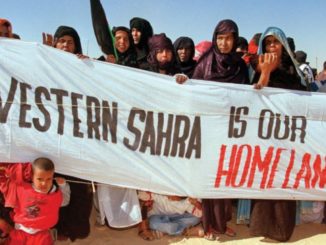
Ahead of UN Session, Sahrawis Recollect Decades of Betrayal That Enabled Moroccan Colonization
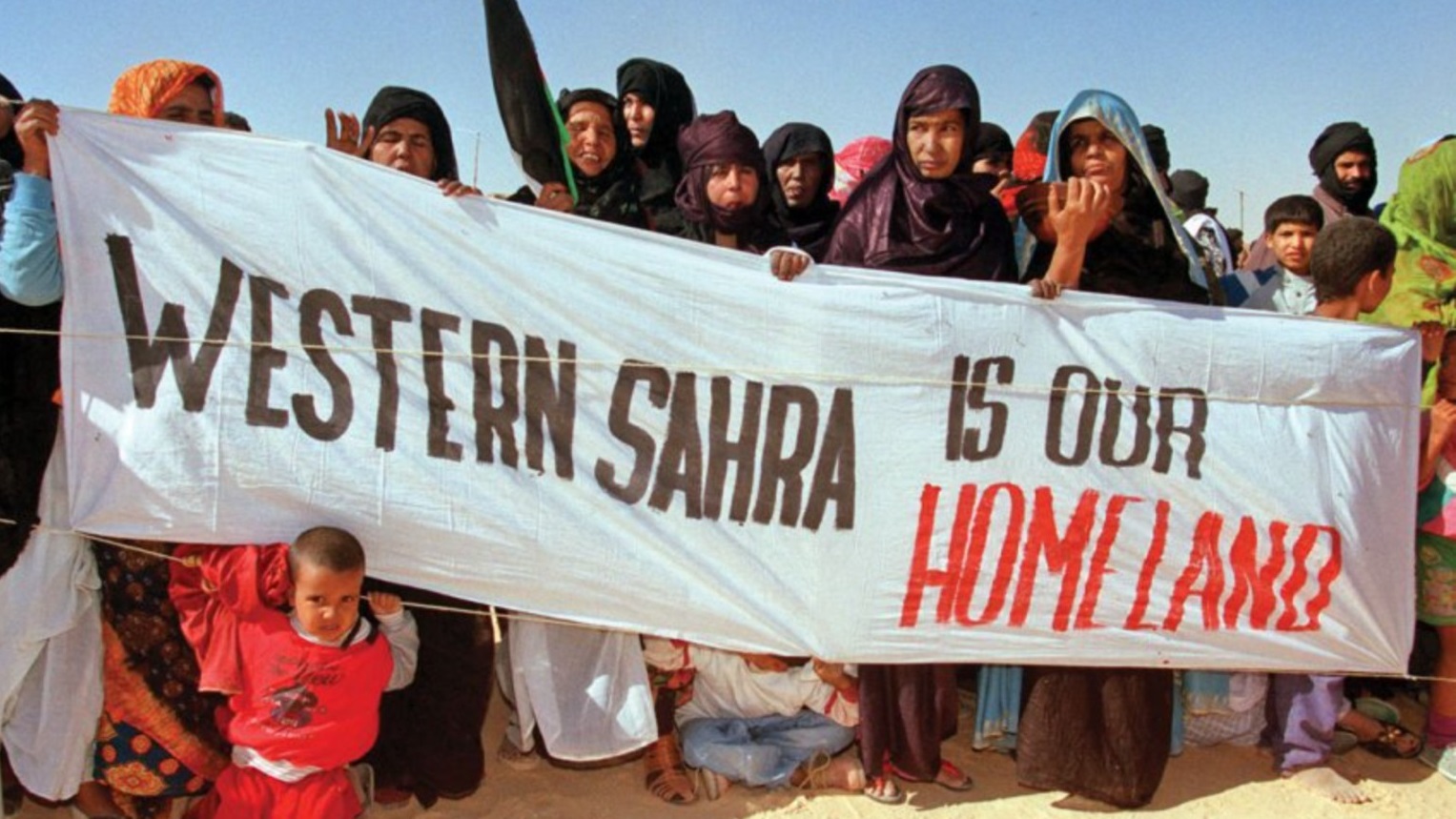
Editor’s Note: The following was originally published in Peoples Dispatch.
Amid the ongoing war for the liberation of Western Sahara from Morocco, which is illegally occupying 80% of its territory, the UN Security Council (UNSC) is reportedly scheduled to discuss the conflict for the second time this month on Monday, October 10. Two more sessions are scheduled for October 17 and 27.
The “Council is expected to renew the mandate of the UN Mission for the Referendum in Western Sahara (MINURSO), which expires on 31 October,” states the UNSC’s monthly forecast for October.
Known officially as the Sahrawi Democratic Republic (SADR), Western Sahara—a founding and full member-state of the African Union (AU)—is Africa’s last colony. It is listed by the UN among the last countries awaiting complete decolonization.
Its former colonizer, Spain, ceded the country to Morocco at the persuasion of the Unite in 1976, despite the fact that the International Court of Justice (ICJ) had dismissed Morocco’s territorial claims. The position supporting the Sahrawi peoples’ right to self-determination has since been upheld by the UN, the AU, the Court of Justice of the European Union (CJEU), and the African Court on Human and Peoples’ Rights (AfCHPR).
MINURSO was established by the UNSC in April 1991 to facilitate the realization of this right by organizing a referendum. In August that year, a ceasefire was secured between the Polisario Front (PF), recognized by the UN as the international representative of the people of Sahrawi, and Morocco.
However, with the backing of the United States and France, Morocco has been able to subvert the organization of this referendum till date. On November 13, 2020, the ceasefire fell apart after 29 years. That day, Moroccan troops crossed the occupied territory into the UN-patrolled buffer zone in the southeastern town of Guerguerat to remove unarmed Sahrawi demonstrators blockading an illegal road that Morocco had built through the territory to Mauritania
“Morocco’s armed incursion was a flagrant violation of the terms of the ceasefire that was declared under UN auspices in 1991,” Kamal Fadel, SADR’s representative to Australia and the Pacific, told Peoples Dispatch. “The Sahrawi army had to react in self-defense and to protect the Sahrawi civilians that were attacked by the Moroccan army.”
Hugh Lovatt and Jacob Mundy, in their policy brief to the European Council on Foreign Relations (ECFR) published in May 2021, observed that “Self-determination for the Sahrawi people appears more remote than when MINURSO was first launched in 1991.” ” With its mandate renewed well over 40 times, the UN “has little to show” for three decades of MINURSO, they said.
“With no power and no support from the UNSC,” MINURSO became “hostage to the Moroccan authorities,” unable even “to report on the human rights situation in the territory, unlike any other UN peace-keeping mission,” Fadel noted.
“We wasted 30 years waiting for MINURSO to deliver the promised referendum. MINURSO’s failure seriously damages the UN’s credibility and encourages authoritarian regimes to defy the international community,” he argued.
While reiterating that “we still believe in a peaceful, just and durable solution under the auspices of the UN,” Fadel maintained that “the UN has to work hard to repair its badly damaged reputation in Western Sahara.”
The position of the UN Secretary General’s former Personal Envoy for Western Sahara was left vacant for more than two years after the resignation of Horst Köhler in May 2019. It was only in October 2021 that Staffan de Mistura was appointed to the post. Mistura, who will be briefing the UNSC member states in the sessions scheduled this month to discuss Western Sahara, is yet to pay a visit to the territory in question. His plan to visit Western Sahara earlier this year was canceled without any reasons stated.
“We hope Mr. Mistura will be able to visit the occupied areas of Western Sahara soon and meet with the Saharawi people freely. It is odd that he has not yet set foot in the territory he is supposed to deal with,” remarked Fadel. Mistura has already met with Foreign Ministers of Morocco and Spain, European officials, and U.S. State Secretary Antony Blinken.
U.S. and European Powers Facilitated Moroccan Occupation of Western Sahara
Western Sahara was colonized by Spain in the early 1880s. Faced with an armed rebellion by the Polisario Front (PF) from 1973, the Spanish government of fascist dictator Francisco Franco agreed in 1974 to hold a referendum. It was an obligation on Spain to fulfill the Sahrawi right to self-determination, in line with the UN’s 1960 Declaration on the Granting of Independence to Colonial Countries.
The neighboring former French colonies of Morocco and Mauritania, eyeing Sahrawi’s mineral wealth and a vast coastline, had already laid claim over the territory since their independence. With about $20 million-worth of weapons supplied by the United States, Morocco began preparation for an armed invasion. Informing the then Spanish Foreign Minister Pedro Cortina about this impending attack in a meeting on October 4, 1975, U.S. State Secretary Henry Kissinger had nudged him to negotiate an agreement with Morocco.
“We are ready to do so.. However, it is important to maintain the form of a referendum on self-determination… Self-determination does not mean independence, although that is one of the options included to give it credibility, but what the people of the area will be called on to do is to show their preference either for Morocco or for Mauritania,” Cortina had responded.
“The problem is the people won’t know what Morocco is, or what Mauritania is,” said Kissinger, with his characteristic cynicism. Cortina corrected him, saying, “Unfortunately, they have learned well from experience what those countries are and they know what all the possibilities are.”
In a subsequent meeting on October 9, Cortina confronted Kissinger about U.S. support for an imminent Moroccan invasion of Sahrawi, then known as Spanish Sahara. He was told that if Spain failed to reach an agreement with Morocco, “it’s not an American concern.” In effect, Kissinger had told Cortina that if Moroccan forces invaded Spanish Sahara using American weapons, the United States would not intervene to stop it.
“We have no particular view about the future of the Spanish Sahara,” Kissinger elaborated on the U.S. position. “I told you privately that… the future of Spanish Sahara doesn’t seem particularly great. I feel the same way about Guinea-Bissau, or Upper Volta. The world can survive without a Spanish Sahara; it won’t be among the countries making a great contribution. There was a period in my life when I didn’t know where the Spanish Sahara was, and I was as happy as I am today.”
“Before phosphates were discovered,” Cortina exclaimed. He was referring to the large deposits found in the territory. Phosphates are the main mineral needed to make fertilizers, of which Morocco went on to become one of the world’s largest producers.
On securing guarantees on access to phosphate and fishing rights, the Spanish government – which had by then also realized that it would not be able to install a puppet Sahrawi elite under Spanish control in power after independence – signed the Madrid Accords. With this treaty, signed on November 14, 1975, only days before the death of Franco who had already slipped into coma, Spain ceded its colony to Morocco and Mauritania.
‘No Tie of Territorial Sovereignty’: ICJ
The UN does not recognize this treaty, which had disregarded the advisory opinion given by the International Court of Justice (ICJ). The advisory opinion was given on the request of the UN General Assembly only a month before, on October 16, 1975. The ICJ, which had also been approached by Morocco, stated that “the materials and information presented.. do not establish any tie of territorial sovereignty between the territory of Western Sahara and the Kingdom of Morocco or the Mauritanian entity.”
However, the United States and its Western allies calculated that an independent Western Sahara under the rule of PF, supported by Algeria which was perceived as inclined toward the Soviet Union, would be against their Cold War interests. And so, the aspirations of the Sahrawi people to realize their internationally recognized right to self-determination, which was pitied as ‘unfortunate’ by the Spanish foreign minister at the time, was trampled over for imperial interests.
By the start of 1976, Moroccan forces occupied the western coastal region of Sahrawi, while Mauritanian forces took over the eastern interior region, forcing 40% of the Sahrawi population to flee to Algeria, where they continue to reside in refugee camps in the border town of Tindouf.
Guerrillas of the PF fought back, quickly regaining the eastern territory from Mauritania, which made peace with SADR and withdrew all its claims by 1979. However, “[b]acked by France and the United States, and financed by Saudi Arabia, Morocco’s armed forces eventually countered Polisario by building a heavily mined and patrolled 2,700-kilometer berm,” Lovatt and Mundy recount in their policy brief to ECFR.
Constructed with the help of U.S. companies Northrop and Westinghouse, the berm is the second longest wall in the world, reinforced with the world’s longest minefield consisting of about seven million landmines. It is among the largest military infrastructures on earth.
Although the Moroccan forces managed to bring about a stalemate by the 1980s with the completion of the construction of the berm, PF’s forces continued to antagonize their positions along the wall. By the time the ceasefire was agreed upon in 1991 following the establishment of MINURSO with a mandate to conduct a referendum, over a thousand enforced disappearances had been reported from the territory under Moroccan occupation. Yet, the protests were unrelenting.
In the meantime, SADR’s cause was gaining increasing support. In 1980, the UN General Assembly (UNGA) recognized the PF as the international representative of Western Sahara. In 1984, after SADR was welcomed as a member of the Organization of African Unity (OAU), the precursor to the African Union (AU), Morocco quit the organization in protest.
Three years later, Morocco applied for membership of the European Communities, which later evolved into the European Union (EU). However, not considered a European country, Morocco’s application was turned down. It was only in 2017 that Morocco joined the AU, to which it was admitted without recognition of any territorial rights over SADR, which is a founding and full member-state of the AU.
In this context of the increasing isolation it faced in the 1990s over its occupation of SADR – except for the backing of the United States, France and Spain – Morocco agreed to hold a referendum, and eventually signed the Houston Agreement with the PF in 1997. This remains till date the only agreement signed between the two. Voter lists were then prepared by MINURSO, and SADR seemed to be on the verge of holding the long-due referendum to realize its decolonization in accordance with the UN Declaration of 1960.
However, more concerned about the stability of the Moroccan monarchy—whose throne had passed from King Hassan II after his death in 1999 to his son Mohammed VI—the United States and France nudged the new King to renege on the Houston agreement, Lovatt and Mundy recount.
The United States’ facade of neutrality on the Sahrawi issue and support for the UN Declaration on decolonization—even while antagonizing the Sahrawi liberation struggle all these decades—was officially removed on December 10, 2020.
The White House, under Donald Trump’s presidency, announced that day that “the United States recognizes Moroccan sovereignty over the entire Western Sahara territory.” Arguing that “an independent Sahrawi State is not a realistic option for resolving the conflict” the United States declared that autonomy under Moroccan sovereignty is “the only basis for a just and lasting solution to the dispute.”
Less than two years later, Spain, which had reversed its position in the 2000s after facing considerable international shame over its handing over of Sahrawi to Morocco, did another volte face, yielding again to the latter’s claims to sovereignty over its former colony in March 2022.
EU and UK Are Invested in Morocco’s Occupation of Western Sahara
This decision of Spain was quickly welcomed by the EU. Its Foreign Policy Chief Josep Borrell’s spokesperson remarked that stronger bilateral relations between any of its member-states and Morocco “can only be beneficial for the implementation of the Euro-Moroccan partnership.”
94% of the fisheries caught by the European fleets from 2014-18 under this “partnership” with Morocco was from Sahrawi waters. When the Court of Justice of the European Union (CJEU) ruled in 2018 that the fisheries agreement with Morocco cannot extend to Sahrawi waters over which Morocco had no sovereignty, the EU simply renegotiated the agreement specifying the inclusion of Sahrawi territory.
A total of 124,000 tonnes of fishery, worth EUR 447 million, was extracted by Europe from Sahrawi waters in 2019, and another 140,500 tonnes, valued EUR 412 million, in 2020. Ruling on Polisario’s challenge to this continuation of European fishing under a new agreement, the General Court of the European Union annulled the same in September 2021.
The European Commission appealed this decision of the court in December 2021. In March 2022, the European Commissioner for the Environment, Oceans, and Fisheries, Virginijus Sinkervicius reiterated in a response to a question in the EU parliament that “the Commission confirms its commitment to the EU-Morocco Fisheries Partnership Agreement.”
Fadel said that the “EU fishing fleets are still finding ways to continue the illegal fishing in the Sahrawi waters with the complicity of the occupying power.”
The United Kingdom High Court of Justice (UKHCJ) had also upheld CJEU’s reasoning in 2019 while ruling in favor of the Western Sahara Campaign UK (WSCUK). The court ruled that the WSCUK “has been completely successful in its litigation” that the preferential treatment given by UK’s Revenue and Customs Service to goods coming from Western Sahara under the EU’s agreement with Morocco went against the international law. The court also concluded the same about the Department for Environment, Food and Rural Affairs’ granting quotas to British vessels fishing in Sahrawi waters.
On October 5, 2022, the High Court held the first hearing of the WSCUK’s case against the Department for International Trade and the Treasury over the UK-Morocco Association Agreement (UKMAA), which was signed in October 2019 post-Brexit.
Three of the five permanent seats with veto power in the UNSC are held by the United States, UK and France, all of which have worked against the Sahrawi liberation struggle. Under the watch of the UNSC, “self-determination and decolonization were replaced with a peace process that has given Morocco veto power over how the Sahrawi people fulfill their internationally recognized rights,” observed Lovatt and Mundy.
“We can only ask the UNSC to stop its pretense about human rights and democracy; to stop its hypocrisy,” Hamza Lakhal, a dissident Arabic poet from Laayoune, the largest city in occupied territory, told Peoples Dispatch. “They will move NATO for Ukraine because they hate Russia, but occupation of Western Sahara against all international laws and resolutions is okay because the occupying power here is a friend.”
‘A Collective Shame’
Morocco’s ‘friendship’ with the West has not necessarily won support for its occupation from fellow African countries. Its attempt to get Kenya’s new President William Ruto to withdraw the country’s decade-long support to the Sahrawi cause and endorse Moroccan claims of sovereignty over the occupied territory back-fired last month, embarrassing both Ruto and Morocco’s foreign ministry.
Subsequently, when it raised issue with South Sudan’s decision to resume diplomatic relations with SADR on September 20, Morocco was put down in a statement by the former’s foreign ministry, simply clarifying that it will not take a position contradicting that of the AU and UN.
In a judgment on the same day, the African Court on Human and Peoples’ Rights reiterated that “both the UN and the AU recognize the situation of SADR as one of occupation and consider its territory as one of those territories whose decolonization process is not yet fully complete.”
Stating that “although Morocco has always laid claim on the territory it occupies, its assertion has never been accepted by the international community,” the court reiterated the ICJ’s 1975 advisory opinion.
Describing Sahrawis’ right to self determination as “inalienable, non-negotiable, and not subject to statutory limitations,” Algeria’s Foreign Minister Ramtane Lamamra, in his address to UNGA on September 27, called on the UN “to assume their legal responsibilities towards the Sahrawi people.”
The UN-promised “organization of a free and fair referendum in order to enable these courageous people… to decide on their political future cannot forever be taken hostage by the intransigence of an occupying state, which has failed several times with regards to its international obligations,” he said.
Namibian President Hage Geingob said in his address to the UNGA that the “lack of progress in implementing UN resolutions to resolve the question of Western Sahara should be something we must all have a collective shame for.”
